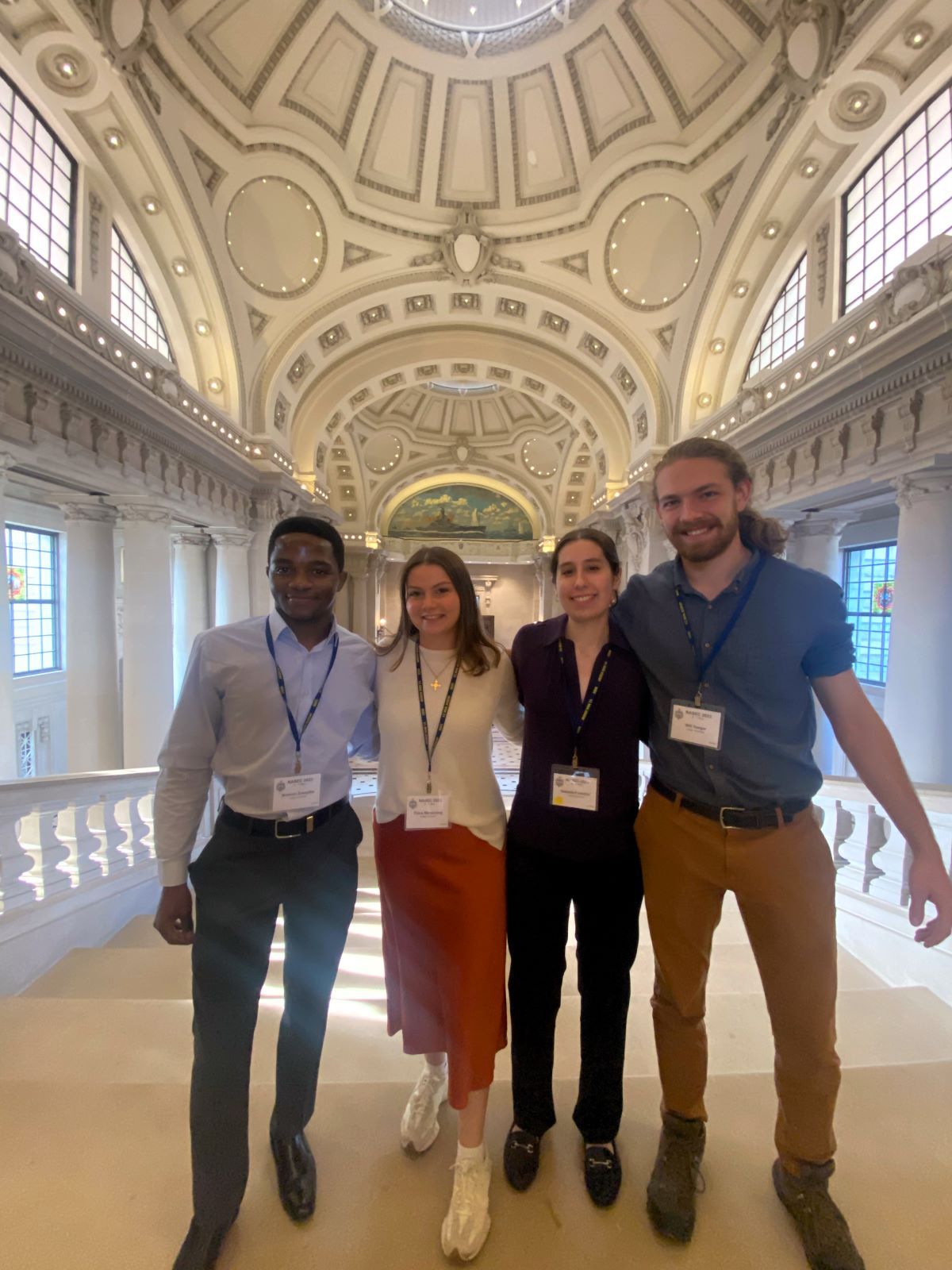Four Lehigh undergraduate students attended the Naval Academy Science and Engineering Conference in November 2023. The event focused on genetics and included presentations and discussions on topics such as genetic modification, genetic technology, and the use of genetic data.
Will Yeager ’24, Fiona Mensching ’25, Norman Zvenyika ’24 ’25G, and Isabella Federico ’24, attended the conference at the U.S. Naval Academy in Annapolis, Maryland. The conference brought together policy makers, science advisors, university faculty, and students to discuss significant science and engineering challenges.
Among the speakers was Dr. Monica Bertagnolli, director of the National Cancer Institute, who gave a lecture on the importance of growing genetic databases, while protecting privacy, to further research pursuits in the U.S. Bertagnolli is the founding chair of the minimal Common Oncology Data Elements (mCODE) executive committee. The goal of mCODE is to standardize cancer data on electronic health records so that the data is interoperable.
Other speakers discussed bioethics, forensics, genetic epidemiology research, biosynthetics, and gene editing.
“I personally found that each of these presentations held their own mark on the theme,” says Federico, who is studying bioengineering and doing research in the Jedlicka Lab on single-walled carbon nanotube uptake for neural stem cell differentiation to identify critical protein pathways. “They really added to the discussion on how we interpret, currently use, and develop our ideas for the future in genetic research and technology to solve major human health and scientific challenges.”
Small group discussions gathered student attendees, hailing from civilian, military, and foreign institutions, to share their perspectives and ideas. A poster session gave students, including Yager and Zvenyika, an opportunity to present their research.
“My research focuses on understanding the genetics of the hybrids when different species of yeast mate with each other,” says Yager. “These hybrid yeasts occur frequently in nature, and they often display traits that make them useful for brewing and other industrial applications but we don’t know a lot about why.” Yeager is an IDEAS (Integrated Degree in Engineering, Arts and Sciences) student studying molecular biology and biocomputational engineering. He has worked in the Lang Lab (Department of Biological Sciences/College of Arts and Sciences) for almost two years
Zvenyika presented his research with the SickIED team, a student-led group of Lehigh University Global Social Impact Fellows, to create a low-cost, diagnostic device for sickle cell disease, which is a key driver of child mortality in Sub-Saharan countries such as Sierra Leone. Zvenyika is pursuing a dual bachelor’s degree in bioengineering and computer science and engineering and a master’s degree in computer science and engineering.
—Emma Eggleston '24 is a student writer for the P.C. Rossin College of Engineering and Applied Science

